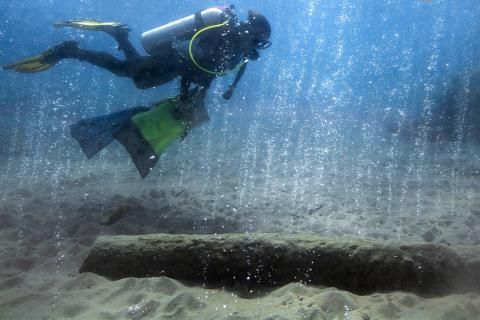CHEMICAL OCEAN
We know that carbon dioxide emissions are affecting the planet’s climate. Now it appears that these carbon emissions are also altering the chemistry of our oceans. The calamitous damage that these two man-wrought perils will visit upon future generations is almost too terrible to contemplate.
In this urgent three-part series on ocean acidification, The Seattle Times examines the slow poisoning of the Pacific, a process that now threatens to damage marine life far faster than scientists first anticipated.
Environmental reporter Craig Welch marshals new scientific evidence and powerful narrative to shed light on this critical but under-reported topic. Photojournalist Steve Ringman’s breathtaking images and video bring the story to life. We believe that this project, made possible by a grant from the Pulitzer Center, is journalism of the highest order.
MEN WITHOUT WOMEN
Pulitzer Center grantee Carl Gierstorfer tells CNN that in India “discrimination against women starts in the womb.” Carl has been documenting gender imbalance and its implications in India where easy and inexpensive access to ultrasound scans has made it possible for even relatively poor couples to abort unwanted female babies.
“There are regions where fewer than 800 girls are born for every 1,000 boys,” says Carl. “It is estimated that India has been losing up to 12 million baby girls over the last three decades.” While this has helped families avoid paying a large dowry to marry off their daughters, it has created a severe shortage of eligible brides and a brutal market for the exploitation of young women.
“In one village just two hours drive outside Delhi, I met Narinder, a schoolteacher, and his family. He had three brothers and only one of them got married. There weren't enough brides, because the village has been aborting their daughters for decades,” Carl said. “Narinder told me that he had already reached out to an agent who would find him a bride from afar. In fact, he planned to share this bride with his brothers.”
THE AFGHANISTAN SHE LEFT BEHIND
More than 3 million girls now attend school in Afghanistan; little more than a decade ago, when the country was under Taliban control, that number was virtually zero. What will happen when U.S. troops pull out early next year? Pulitzer Center grantee Mellissa Fung recently travelled to Kabul to find out. But this was more than a reporting trip for Mellissa.
Five years ago, while working as the CBC correspondent in Kabul, Mellissa was kidnapped and held captive for 28 days in a cramped hole dug in the ground. She was freed in what amounted to a hostage swap. Back in Washington, where she lives now, Mellissa says she longed to return to Afghanistan to finish her story on efforts to improve the lives of girls and young women.
Earlier this year Mellissa was able to return with a group of Canadian women who have been working for years to raise funds to build schools for girls. You can read Mellissa’s remarkable story, and the story of the Afghanistan we are leaving behind, in the October issue of The Walrus.
THE MEDIA AND PUBLIC HEALTH
On October 10 in Baltimore, we're inaugurating our Campus Consortium relationship with the Johns Hopkins Bloomberg School of Public Health with a symposium on the role of the media in the fight against non-communicable diseases. Grantee Joanne Silberner will present her award-winning reporting on cancer in the developing world. Our executive director, Jon Sawyer, will speak on the state of global health journalism. We hope you can join us.
